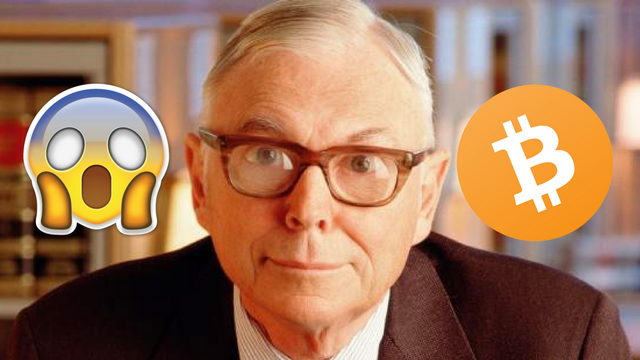The real reason why Charlie Munger called Bitcoin "asinine"
It's not a mystery that most of Charlie Munger's investments are not technology related. In this blog, I want to dig into one reason for why Munger might have a bad opinion of crypto currencies and how this reason contributes to the lack of progress or failure of blockchain to draw out the ingenuity it deserves.
In 1995 Munger gave a talk at Berkshire Hathaway on a system of thought he developed called the 25 cognitive biases. This supports the notion that due to an evolutionary mismatch, the average human brain relies on cognitive biases to make fast decisions.
Unfortunately these biases do not work as well as they did in pre-historic times when our ancestors needed to avoid getting eaten by lions. Today, there are many more variables to consider when making decisions and this means that the 25 cognitive biases have become a hinderance for decision making.
When I heard Charlie Munger's comments on Bitcoin, it made me specifically zero in on the availability bias (bias 18) and how this flawed decision making applied to human behavior around crypto currencies.
This bias supports the notion that people work with and overweigh what is easily available to them. When the brain can’t use what it can’t remember or it is blocked from recognizing because it is heavily influenced by one or more psychological tendencies bearing strongly on it, then any decisions it makes will be limited. An example of the bias can be found in the expression "when I am not near the person I love, I love the person I am near".
The huge surge of speculative interest around bitcoin in 2017 can explain this exactly. When no other long term plan is enacted other than making money fast, the results are asinine.
In the end, the flaws that Munger pointed out about crypto currency are irrelevant. It is the human behavior around crypto currency that will prove if long term benefits of blockchain and token economics can work.
One of the original pioneers of decentralized economies, E.F Schumacher, quoted in his book "Small is beautiful":
"While people, with an easy going kind of logic, believe that technology can open up a new dimension of freedom (which they do in some rather trivial respects), they overlook the fact that these new achievements tend to destroy freedom, by making everything extremely vulnerable and extremely insecure, unless conscious policies are developed and conscious action is taken to mitigate the destructive effects of these technological developments."
This statement might seem over dramatic, but the underlying principle needs to be taken seriously.
Like value investment, blockchain will not work if it only works with availability or short term mentality. Rethinking value chains is not a task that can just be solved by a bunch of nodes on a distributed ledger. It is going to require a huge amount of effort by the people creating the blockchains and will ultimately be judged by their relationship with their end users.
Read more about the 25 cognitive biases here: https://www.allencheng.com/25-cognitive-biases-charlie-munger/
I have been trying to eradicate these biases from my decision making more lately. Leave a comment if you can relate to this :)
